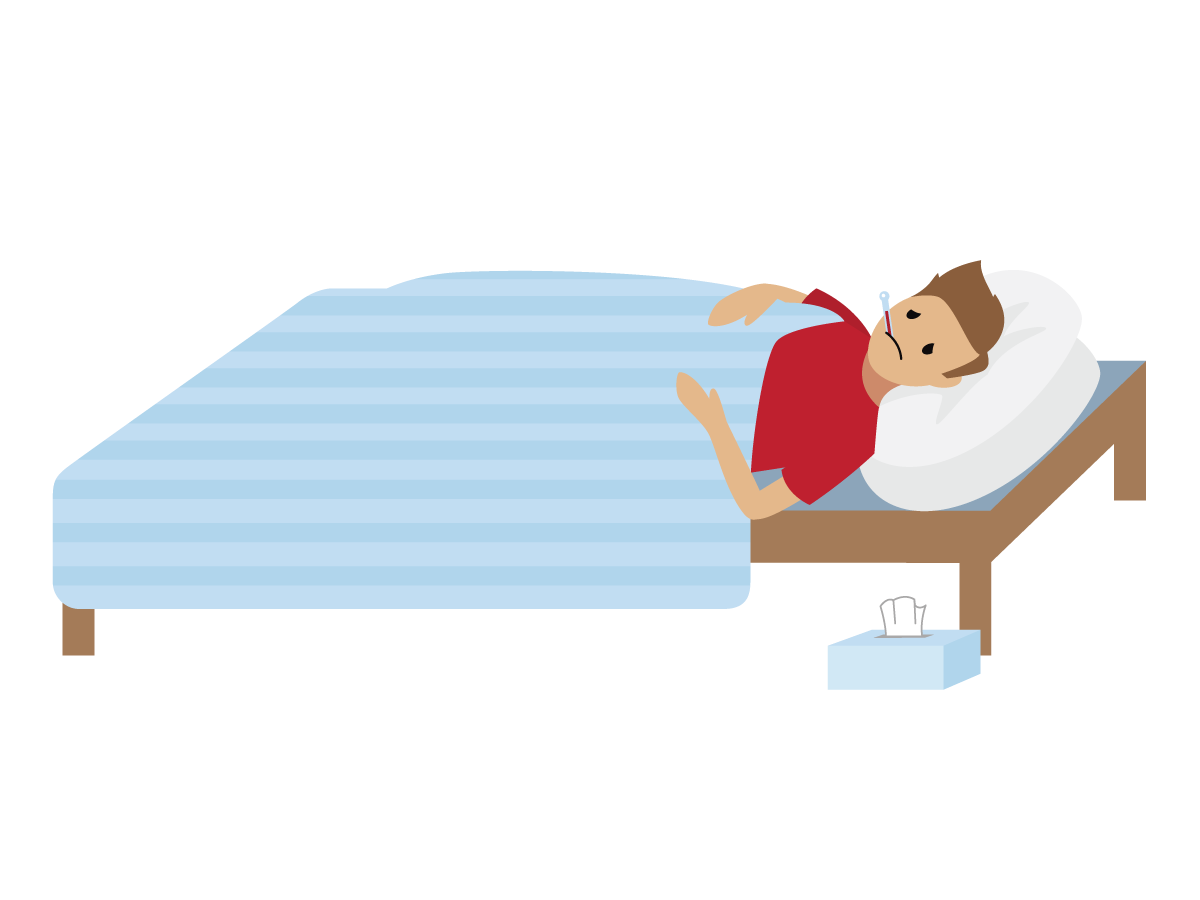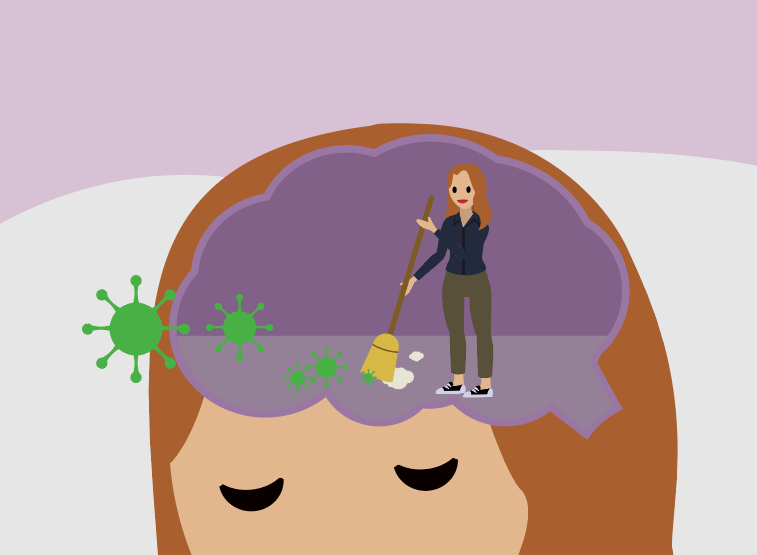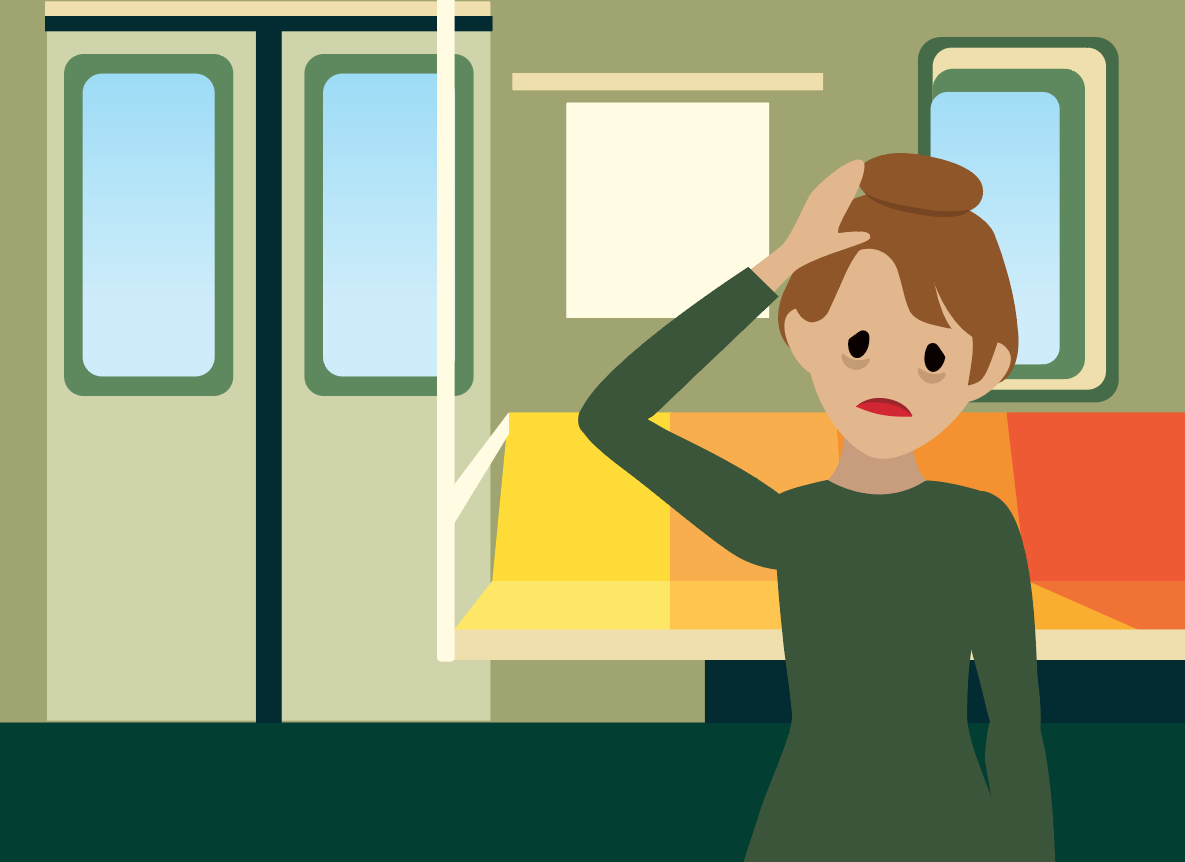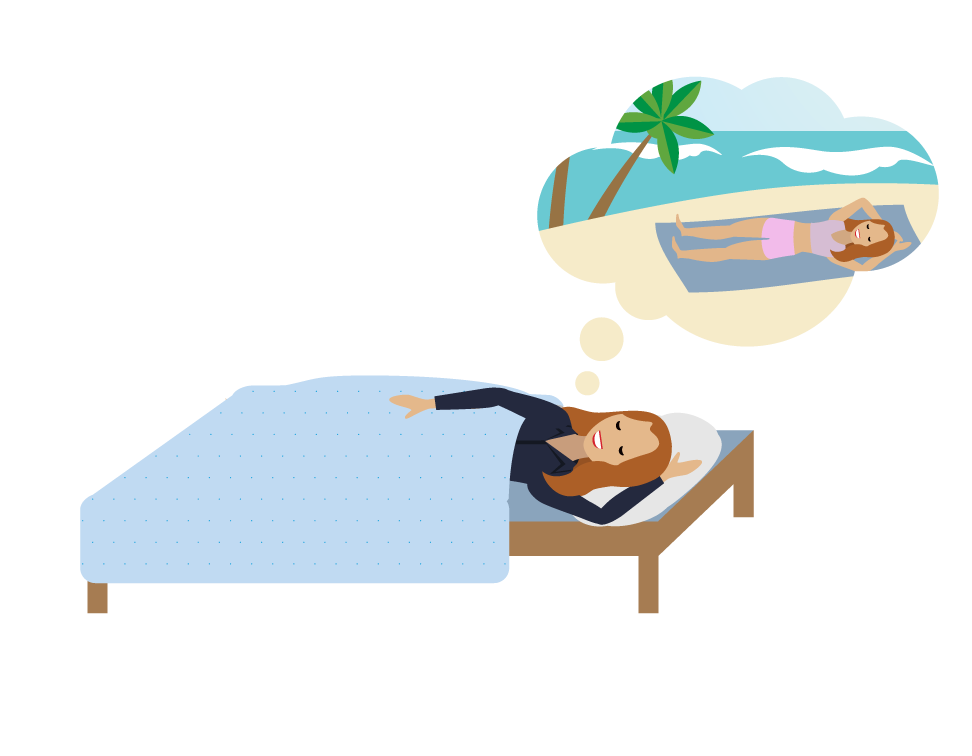Learn Why Sleep Matters
Learning Objectives
After completing this unit, you’ll be able to:
- Identify negative health outcomes and adverse effects of poor sleep.
- Explain the relationship between productivity and sleep.
- Describe the function of sleep.
Why We Need Sleep
Who doesn’t love a good night’s sleep? Quality sleep not only feels great, but also is critical to your health and wellbeing. That’s because sleep is restorative for your brain and body. Getting adequate sleep can:
- Boost immunity.
- Increase productivity.
- Elevate mood.
- Enhance learning.
- Improve decision-making.
But more than that, sleep is a fundamental requirement of life. That’s why taking time to rest and revive your mind and body is a core pillar of wellbeing at Camp B-Well.
What Happens When We Don’t Get Enough Sleep?
In a perfect world, we wake up feeling well-rested and restored every morning. Unfortunately, sometimes life gets in the way, and sleep is one of the first things to take a hit.
But did you know that not getting enough sleep has long-term health consequences?
Lack of sleep affects you physically. In The Sleep Revolution, by Arianna Huffington, research shows that it weakens your immune system and can lead to chronic health conditions such as obesity, type 2 diabetes, dementia, Alzheimer’s disease, depression, and insomnia.

According to renowned sleep expert and bestselling author Dr. Matthew Walker, after just one night of shortened sleep, there is a 70% reduction in anticancer-fighting immune cells. Remember that the next time you prioritize working late over getting the sleep you need. Sleep should always be a top priority.
But cancer isn’t the only concern. Studies like the one in Sleep: Journal of Sleep Research & Sleep Medicine show that lack of sleep results in higher levels of the stress hormone cortisol. Stress triggers inflammation in the body which increases the risk of having a fatal heart attack or stroke (Sleep Revolution).
Lack of sleep is also linked to Alzheimer’s disease. Sleep plays a housekeeping role in your brain, like a custodian whose job it is to sweep away the toxic protein that builds up during the day. So when you don’t get enough sleep, the bad stuff doesn’t get swept away, and the excess protein contributes to dementia later in life—an increasingly common problem for the aging population, according to the World Economic Forum (WEF). So much so that reports from the WEF predict that the number of Alzheimer’s cases will skyrocket in the coming years.

Increasingly, studies are showing that lack of sleep plays a role in your mental health as well. Studies like the one in The Lancet Psychiatry show that disrupted sleep patterns increase the risk of depression and bipolar disorder. On the flipside, people with existing mental conditions are more likely to struggle with sleep. According to a study in the Psychiatric Clinics of North America, 50–80% of patients in a typical psychiatric practice have some type of struggle with sleep.
The Cost of Lost Sleep
If you’ve ever sacrificed sleep to get ahead at work, you may want to rethink your strategy. Because neither you nor your company are benefitting. Lack of sleep or poor sleep affects performance, and not in a good way. Imagine your brain is a sticky mat that collects information. When functioning properly, new information sticks to the brain. But without sleep, the brain is less sticky, making it hard to collect new information.
And that’s not all. Lack of sleep impairs our ability to problem-solve and make decisions. This means that we’re not getting new information and we’re not doing anything productive with the information we already have stored. According to Dr. Walker, it only takes about 16 hours of not sleeping before your brain starts to go haywire. More than that (19–20 hours) and your mental capacity is comparable to someone who is legally drunk!

According to a study in SLEEP, lack of sleep accounts for 11 days of lost productivity per year per worker in the United States. That’s more than $63 billion in total annual cost of sleep deprivation. And a survey from the UK shows that one in five employees missed work or called in late because of sleep deficiency, adding up to about 47 million hours of missed work per year (Sleep Revolution). Bottom line: Poor sleep can be costly.
Understanding the Sleep Cycle
There’s clearly much more to sleep than just closing your eyes. And since it’s so important, let’s dig deeper into what actually happens to your brain while you sleep before we head to the next unit. You know, the science-y stuff.
Within a sleep cycle, there are four stages of sleep, characterized by rapid eye movement: non-REM and REM. A sleep cycle is only about 90 minutes, so you actually cycle through all of the stages several times during the night. Both non-REM and REM are important for memory and functioning (Sleep Revolution). Here are the four stages broken down in an easy way.
- Light sleep. Imagine when you first start to snooze and you can faintly hear what is going on around you.
- A little deeper. During stage two, eye movement slows and your body temperature drops.
- The deepest sleep you’ll have. Remember those mornings when you just couldn’t wake up no matter how hard you tried? Blame stage three. Not coincidentally, most of the restoration we talked about takes place during this stage.
- REM sleep. During this stage, the brain sorts through memories and emotions—an activity that is critical for learning and thinking. REM sleep is also when dreams occur (Sleep Revolution). Speaking of dreams…

What’s the Deal with Dreams?
Have you ever dreamt that you were flying? Or that you were naked in front of a room full of people? The language of dreams is symbolic. According to Carl Jung, dreams may reveal hidden parts of ourselves. Dreams help bring new thoughts and ideas to the surface. But more than that, dreams are essential for learning and memory.
Research suggests that dreams help process emotions. Recurring dreams may be symbolic of underlying worries or fears. Processing negative emotions while we sleep can reduce stress and anxiety and help us cope with painful emotional experiences (Sleep Revolution). Pretty cool, huh?
Sleep is vital for wellbeing. Without sleep our body and mind can’t function properly—leading to poor health outcomes and negative effects that ultimately, become quite costly. Now that we understand why sleep is so important, let’s talk about how we can improve our sleep in the next unit.
Resources
- What Happens To Your Body And Brain If You Don't Get Sleep Dr. Walker
- Poor Sleep and Alzheimer's World Economic Forum
- Sleep Revolution Arianna Huffington
- Why Sleep is important for your mental health World Economic Forum
- Sleep and Mental Health Harvard Health
- Disruptive Sleep and Mood Disorders The Lancet Psychiatry
- Sleep Disorders and Mental Health Psychiatric Clinics of North America
